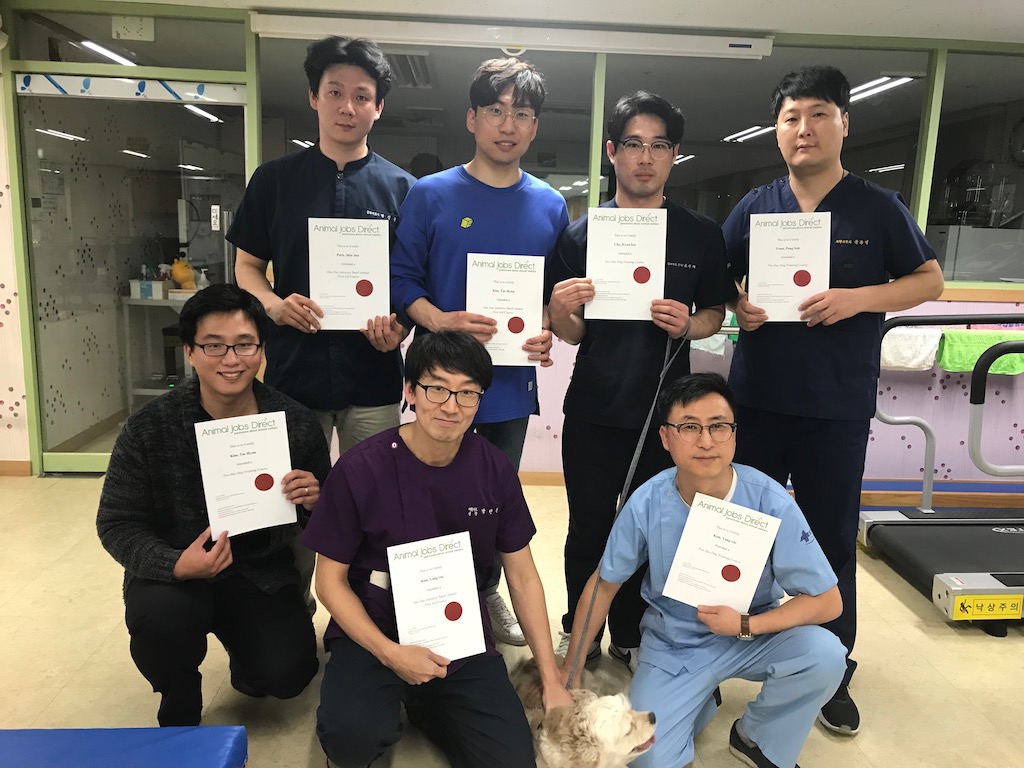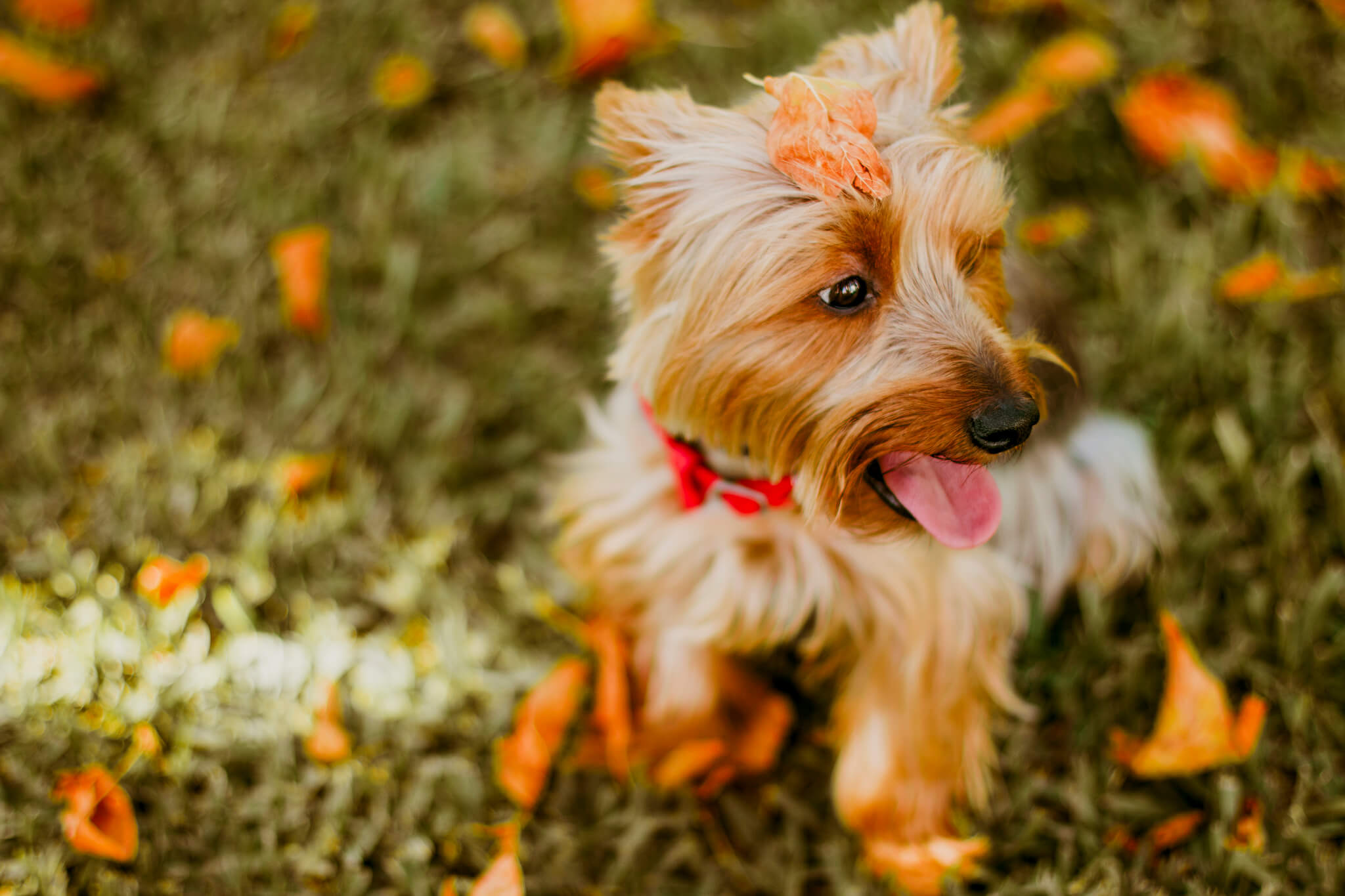What is a Small Animal Hydrotherapist?
Small Animal Hydrotherapists use hydrotherapy techniques (often in a specialised pool) to help animals to recover from injury or as part of pain management. Some animals require Hydrotherapy treatment for pain management after an operation and some need it to stay healthy or for weight control – particularly if they suffer from obesity.
Small Animal Hydrotherapists commonly work with dogs of all shapes and sizes, but they also have the skills to provide hydrotherapy treatments for cats, rabbits, and even small cattle such as sheep, goats, and even ponies.
Small Animal Hydrotherapists can also be known as Veterinary Hydrotherapists or Canine Hydrotherapists if they only have patients that are dogs.
Why is Hydrotherapy beneficial for Animals?
Hydrotherapy uses a low impact on an animal’s body. Water allows the animal to move in a buoyant environment and can provide several health benefits including:
- Joint Flexibility
- Improve Mobility and Movement
- Reduce Joint Pain
- Build Strength
- Muscle Circulation
- Cardiovascular Fitness
Animals are often referred to Hydrotherapist by a qualified Veterinary Surgeon. Hydrotherapy in conjunction with veterinary treatment can increase the healing process and can improve their general fitness and help aid recovery from injury.
There are several pre-existing conditions that animal patients have that would benefit from using Hydrotherapy as a form of treatment. These are commonly known as:
- Muscle and ligament Injuries
- Sprains
- Broken Bones
- Hip Dysplasia
- Spinal Injuries
- Paralysis
- Post-operative Muscle Regeneration
- Osteochondritis Dissecans (OCD)
- Obesity
- Weight Control
Where do Hydrotherapists work?
As animal Hydrotherapy has grown in popularity, Hydrotherapists are now located in all sorts of animal-related businesses. Often you will find a standalone, private Hydrotherapy centre but you can also find them within Veterinary Practices, Veterinary Hospitals, Dog Grooming Salons and even associated with Horticultural businesses such as Animal Physiotherapy Centers.
What soft skills do you need to become a Small Animal Hydrotherapist?
To consider a career as a small animal hydrotherapist, there are several soft skills that are required to become successful.
- Compassion for Animal Care
- Physically Strong
- Ability to Swim
- Eager and fast learner
- Charisma for Patient and Customer Care
- Time Management
- Organisational Skills
Firstly, Animal Hydrotherapists must show compassion for animals. They are often helping animals who are in pain therefore empathy and understanding of this will help them work with their animal patients. Hydrotherapists in training will practice Hydrotherapy techniques in water, using treadmills and various equipment and tools. Therefore it is a necessity that they are strong swimmers, who can lift and move animals carefully. It is also important to be good with time management, Hydrotherapists will be working under a tight schedule with dedicated slots for specific treatments and routines. Having organizational skills to juggle customers, clients, and patients with the ability to multitask is advantageous.
How much does a Small Animal Hydrotherapist earn?
Junior or recently qualified Small Animal Hydrotherapists can earn anything between £9.00-£14.00 per hour which is around £20,000 per annum. However, an experienced Hydrotherapist with more than one qualification or specialism can earn up to £65,000 per annum.
How do to become a qualified Small Animal Hydrotherapist?
Having a regulated qualification is essential to work as a registered animal Hydrotherapist. In the UK, you can become qualified with a Level 3 Diploma or Certificate. The qualification must be Ofqual regulated and include several days of practical hands-on experience.
The Level 3 Certificate in Small Animal Hydrotherapy is the fastest way to get an Ofqual regulated qualification in Small Animal Hydrotherapy that can be used around the world. This qualification includes 4 days of practical training at a Hydrotherapy approved training centre.
Alternatively, if you wanted to obtain a unique advantage in the Hydrotherapy sector then you can gain your Level 3 training with a qualification combined with the Level 6 Diploma in Veterinary Physiotherapy. This qualification once completed will allow learners to become registered Small Animal Hydrotherapist and Veterinary Physiotherapist in one sitting.
For all related courses, training and qualification please visit the Hydrotherapy course page.
How can you become an Advanced Animal Hydrotherapist?
Hydrotherapists who have completed their Level 3 training and qualification will often seek out further training from Level 4 – Level 6 or by adding further skills in Aquatic Advanced treadmill by focusing on gait analysis and biomechanics. Alternatively, Hydrotherapists can train to treat animals both in and out of the water by training to become a Veterinary Physiotherapist, this is a sort after and complementary skill.
Advanced Hydrotherapists can advance their skill set by studying the following Ofqual regulated qualifications:
Level 3 Award in Advanced Aquatic Treadmill Therapy for Small Animals
Level 4 Diploma in Small Animal Hydrotherapy
Level 6 Diploma in Veterinary Physiotherapy with Hydrotherapy
How do you become a registered Animal Hydrotherapist?
To become a fully licensed Hydrotherapist you need to have a valid membership and register at a Hydrotherapy Industry board. There are a few organizations that provide registration for professional, qualified, and experienced Hydrotherapists.
The Canine Hydrotherapy Association (CHA)
The CHA is the industry leader for registered Veterinary and Animal Hydrotherapists.
“CHA members hold Nationally Accredited Qualifications in Small Animal Hydrotherapy. Our centres are also inspected by a Canine Hydrotherapy Association representative to ensure that they meet the highest standards their patients deserve. The CHA is the only inspection controlled regulating small animal hydrotherapy association in the industry.” – CHA (2022)
NARCH
The National Associate of Registered Canine Hydrotherapists (NARCH)
NARCH is a charity organization that maintains the List of Registered Canine Hydrotherapists (RCHs) in the UK.
“NARCH ensures that all RCHs adhere to the highest professional standards and ethics and these requirements are laid out on this website and within the Guide to Professional Conduct for Registered Canine Hydrotherapists.” – NARCH (2022)
Where can I get a job as an Animal Hydrotherapist?
Qualified and trained (Level 3 – Level 6) Hydrotherapists can seek employment by registering with our Animal Job Board for the latest vacancies around the world.
You can contact Hydrotherapy centres near where you live with your CV, or alternatively, set up your own Private Small Animal Hydrotherapy business in your hometown.
Book a call with one of our career advisors and they will take you through training and career options within the animal industry.






